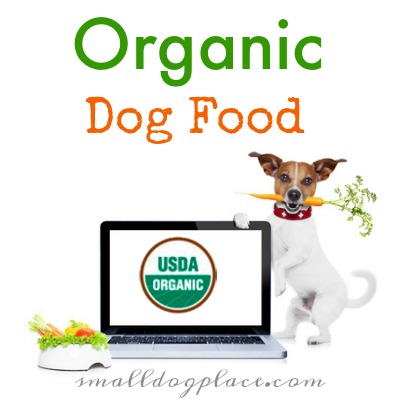- Small Dog Place Home
- Nutrition
Dog Nutrition 101:
Nutritional Needs of Small Breed Dogs
by Janice Jones | Updated December 2025
Dog nutrition can feel overwhelming, especially for small-breed dog owners. Conflicting opinions, changing trends, and marketing claims make it difficult to know what truly matters.
This guide explains the fundamentals of dog nutrition, with a specific focus on small breed dogs. The goal is not to promote a particular diet, food brand, or feeding philosophy, but to help you understand how nutrition works so you can make informed, responsible decisions for your dog.
Important Note for Readers
This article is educational only and does not replace veterinary advice. Dogs with medical conditions, allergies, digestive problems, or special dietary needs should always be evaluated by a licensed veterinarian.
What Does “Balanced Nutrition” Mean for Dogs?
Dogs require a balance of six essential dietary components:
- Water
- Protein
- Fat
- Carbohydrates
- Vitamins
- Minerals
A food described as “complete and balanced” is formulated to provide these nutrients in appropriate proportions for a specific life stage, such as puppy, adult, or senior.
Balanced nutrition is not about maximizing one nutrient. It is about meeting needs without excess or deficiency.
Why Small Breed Dogs Have Unique Nutritional Needs
Small dogs differ from larger dogs in several important ways:
- Faster metabolism relative to body size
- Smaller stomach capacity
- Higher energy needs per pound
- Greater sensitivity to calorie excess
Because of this, small dogs often do best with:
- Calorie-dense food in smaller portions
- Consistent feeding schedules
- Easily digestible ingredients
- Appropriately sized kibble
There is no single diet that is ideal for all small dogs. Individual factors such as age, activity level, and health status matter.
Water: The Most Important Nutrient
Water is essential for every function in a dog’s body, including:
- Digestion
- Circulation
- Temperature regulation
- Organ function
Adult dogs are made up of roughly 50–60% water, while puppies contain even more.
Dogs eating dry food generally need to drink more water than dogs eating moist or canned diets. Fresh, clean water should always be available.
Changes in drinking habits can sometimes indicate health concerns and should be discussed with a veterinarian.
Protein: Supporting Growth and Maintenance
Protein provides the building blocks for:
- Muscles
- Organs
- Skin and coat
- Immune system function
Proteins are made of amino acids. The dog’s body can produce some amino acids, while others must come from the diet.
Both animal-based and plant-based proteins can contribute to a balanced diet. What matters most is digestibility and appropriate quantity, not simply a high protein number on the label.
Excess protein is not necessarily harmful for healthy dogs, but more is not always better.
Digestibility Matters More Than Numbers
A food may list a high protein percentage, but if that protein is poorly digested, the dog cannot fully benefit from it.
Highly digestible protein sources allow the body to absorb and use nutrients more efficiently. Poorly digested ingredients pass through the body with limited nutritional value.
This is one reason why a dog's response to a food matters as much as the label itself.
Fat: Concentrated Energy and Essential Nutrients
Dietary fat provides:
- A concentrated source of energy
- Support for skin and coat health
- Essential fatty acids
Omega-3 and Omega-6 fatty acids play essential roles in the body, but balance matters. Too little fat can affect energy levels and coat condition, while too much fat may contribute to weight gain or digestive upset.
Fat requirements vary based on activity level, life stage, and individual tolerance.
Carbohydrates: Providing Energy and Fiber
Carbohydrates include sugars, starches, and fiber. In dog food, they can:
- Provide energy
- Support digestive health
- Contribute to balanced formulations
Grains and other carbohydrate sources are not inherently harmful. Their value depends on type, processing, and proportion within the overall diet.
Fiber, in appropriate amounts, supports normal digestion. Excess fiber, however, can lead to gas, loose stools, or increased stool volume.
Vitamins: Small Amounts, Big Roles
Vitamins support many metabolic processes, including:
- Vision
- Immune function
- Bone health
- Nervous system activity
Dogs require vitamins in very small, specific amounts. More is not better, and unnecessary supplementation can sometimes do more harm than good.
Commercial foods formulated to meet nutritional standards already contain the required vitamins in controlled amounts.
Minerals: Essential for Structure and Function
Minerals support:
- Bone development
- Muscle contraction
- Nerve transmission
- Enzyme function
Some minerals are needed in larger amounts, while others are required only in trace quantities.
Minerals must be provided in proper balance. Poorly absorbed mineral forms may be listed on labels, but absorption varies by formulation and individual dog.
Signs Your Dog’s Diet May Need Review
A balanced diet plays a vital role in your dog’s overall health, but nutrition is only one piece of the puzzle. Changes in your dog’s appearance, energy, or digestion can sometimes be influenced by diet, but they can also signal other health issues.
If you notice ongoing changes, a veterinarian should always be consulted.
That said, here are common signs that may prompt a closer look at your dog’s diet.
1. Low Energy or Lethargy
Dogs who consistently seem tired, uninterested in play, or less willing to exercise than usual may not be getting adequate energy from their diet, or they may have an underlying health issue. Activity levels vary by breed and age, but noticeable changes should not be ignored.
2. Dull Coat or Dry, Flaky Skin
A healthy coat is often shiny, clean, and free of excessive shedding or dandruff. Poor coat condition can sometimes be associated with imbalances in protein, fats, or essential fatty acids, though allergies and medical conditions can produce similar symptoms.
3. Digestive Changes
Frequent diarrhea, constipation, excessive gas, or large stools may indicate that a food is poorly tolerated or that nutrients are not being absorbed efficiently.
4. Unusual Changes in Appetite or Thirst
A sudden increase or decrease in appetite, constant hunger, or noticeable changes in water intake can sometimes occur when a diet is not meeting a dog’s needs, but these signs also warrant veterinary attention.
5. Weight Changes
Unintended weight loss or gradual weight gain may suggest that calorie intake does not match your dog’s age, size, activity level, or metabolism. Portion size and food quality both matter.
6. Slow or Abnormal Growth in Puppies
Puppies rely on properly balanced nutrition to support normal growth and bone development. A veterinarian should continually evaluate poor growth patterns.
7. Changes in Stool Appearance
While diet can influence stool color and consistency, dramatic or persistent changes, such as predominantly black, pale, or greasy stools, should be discussed with a veterinarian rather than attributed solely to diet.
A Helpful Reminder
Many of these signs can be influenced by diet, but they are not diagnostic. Illness, parasites, allergies, hormonal conditions, and other medical issues can cause similar symptoms. If changes persist, professional evaluation is essential.
Feeding Small Breed Dogs: Practical Considerations
Small dogs grow faster and reach maturity earlier than large dogs. They also burn calories more quickly.
Because of this:
- Small dogs often need more calories per pound than large dogs
- Smaller, more frequent meals may be beneficial
- Puppies often do best with three meals per day
- Irregular feeding can increase the risk of low blood sugar in some small dogs
- Kibble size matters for comfort and ease of eating, but nutritional formulation matters more than shape alone.
Life Stage Nutrition Matters
Nutritional needs change over time:
- Puppies require higher energy and specific nutrient ratios
- Adult dogs need maintenance nutrition
- Senior dogs may benefit from adjusted calorie intake
Feeding a diet intended for the correct life stage helps avoid imbalances.
When Nutrition Becomes a Medical Issue
Dietary decisions should always involve a veterinarian when a dog has:
- Chronic digestive issues
- Food sensitivities or allergies
- Weight management challenges
- Metabolic or organ-related conditions
Nutrition supports health, but it is not a substitute for medical care.
Nutrition and Overall Well-Being
Nutrition plays a vital role in a dog’s overall health and daily functioning. While food does not determine a dog’s personality or replace training, a balanced diet helps support the physical systems that influence energy levels, focus, and comfort.
Dogs rely on adequate nutrition to fuel normal bodily processes, including digestion, muscle activity, and brain function. When a diet is poorly matched to a dog’s age, size, or individual needs, some dogs may appear less energetic, less comfortable, or less engaged than usual.
It’s important to note that changes in behavior are not caused solely by diet. Factors such as training, environment, stress, pain, illness, and routine changes often play a much larger role. However, nutrition is one piece of the foundation that supports overall well-being.
Energy, Focus, and Daily Routine
A diet that provides consistent energy can help support regular activity throughout the day. Sudden dietary changes, irregular feeding schedules, or foods that are poorly tolerated may sometimes contribute to fluctuations in energy or digestive comfort.
Comfort and Physical Health
Dogs experiencing discomfort — whether from digestive upset, joint stiffness, or skin irritation — may appear irritable, withdrawn, or less willing to participate in everyday activities. In these cases, addressing overall health, including diet, can be part of a broader plan guided by a veterinarian.
A Balanced Perspective
Nutrition supports health, but it does not replace:
- Proper training
- Behavioral guidance
- Veterinary care
If a dog shows ongoing changes in mood, activity, appetite, or behavior, professional evaluation is essential to identify the underlying cause.
A Responsible Reminder
Nutrition influences how a dog’s body functions, but it should never be used to explain away behavioral concerns or medical symptoms. Persistent changes should always be discussed with a veterinarian or qualified professional.
Final Thoughts
Dog nutrition does not have a single perfect answer. It is about understanding principles, observing your dog, and making informed choices over time.
A balanced, consistent approach paired with professional guidance when needed supports long-term health and quality of life, especially for small-breed dogs.
Did You Find Dog Nutrition 101 Helpful?
If so, may we suggest a couple more pages you might enjoy.
Considering a Homemade Diet for your Little Dog? Read this Article First.
So Many food options today. Do you know which one is the best for your dog?
We'd love to share all of our food with our little friends, but some just shouldn't be shared. Find out the worst foods your dog could eat.
So you want to serve the best food but just not sure where to start? Here are some great ideas to help you make the best choices.
Dogs can and should eat vegetables, but which ones provide the best nutrition and greatest taste to your small dog?
You are switching to organic. Should you also switch your dog too? Find out.
More About Janice (author and voice behind this site)
Janice Jones has lived with dogs and cats for most of her life and worked as a veterinary technician for over a decade.
She has also been a small-breed dog breeder and rescue advocate and holds academic degrees in psychology, biology, nursing, and mental health counseling.
Her work focuses on helping dog owners make informed, responsible decisions rooted in experience, education, and compassion.
When not writing, reading, or researching dog-related topics, she likes to spend time with her six Shih Tzu dogs, her husband, and her family, as well as knitting and crocheting.
She is also the voice behind Miracle Shih Tzu and Smart-Knit-Crocheting

Free Monthly Newsletter
Sign Up for Our Free Newsletter and get our Free Gift to You.
my E-book, The Top 10 Mistakes People Make When Choosing a Dog (and how to avoid them)


